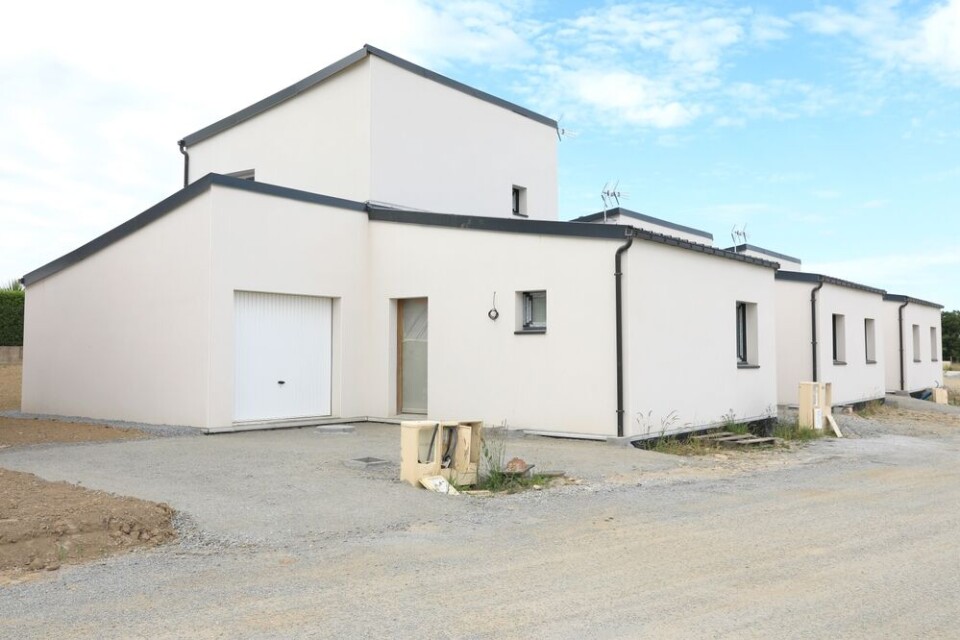-
Big drop in permits for new homes to be built in France
Permits for single-family homes are down by almost a quarter year-on-year
-
No state payout for requisitioned homes built illegally in France
Properties built without permission do ‘not retain right’ to expropriation compensation, states new court ruling
-
What are the costs and rules for DIY home solar panel kits in France?
The number of those choosing to install solar panels themselves is increasing
Points to know when buying land in France to build a house on
From plot types, to soil studies and notaire fees

From selecting a plot, making a written offer, paying the notaire - and paying taxes on the plot - here is a guide to buying land to build a house in France.
What is deemed a building plot?
If you have found land for sale in France that you are interested in purchasing you should first check that construction is allowed. This should be indicated in the sales announcement.
Be aware that for construction to be allowed, the plot must satisfy three points:
- The soil and subsoil must be able to support the weight of construction
- The plot must not be subject to flooding unless the mairie has taken specific measures to allow this or made an exception
- The plot must be accessible by road, and have access to the water and electricity networks
You can see whether construction is allowed on a particular plot by consulting the local planning rules or Plan Local d'Urbanisme (PLU), or on the national register which is available here.
The PLU also contains information concerning what types of construction are permitted according to the approved land use rules for the plot (housing, shops, public services, etc.)
Plot types
The law makes a distinction between a full plot, or terrain isolé, and the subdivision of plot, or lotissement.
A terrain isolé: is a full plot of land that is not necessarily deemed constructable and does not require demarcation to be sold. Such plots can be sold even if they are not reachable by road, and without necessarily having access to the water and electricity networks.
A plot that is in a lotissement: is a subdivision of a larger plot of land sold specifically to be used as a building plot. Prior to being put on sale, the promoter or seller must have received approval from the mairie for the division of the plot and for the land’s future use as a building plot.
A lotissement must also be fully accessible by road and have full access to the water and electricity networks.
Read more: Building a home in France: plans to ease rules to split plots of land
In both cases the seller must also provide a copy of the land’s pollution and risk analysis document or diagnostic ERP. This includes information concerning flooding, the presence of termites, radon gas, pollution and toxicity in the local area. The diagnostic ERP must be no more than six months old.
Read more: Can planning permission be rejected in France due to water shortages?
How to buy land in France?
Once you have identified the land you want to buy, contact the owner and make an informal offer for it.
Read more: Land for sale at €1 per m² in rural village in central France
Indeed, the initial offer does not need to be a formal ‘written offer’ - but this is advisable as it will allow the seller to prepare the ERP documents for you.
The formal ‘written offer’ should be sent by registered post with recorded delivery and include:
- You name, address and the name and address of the seller
- The address, surface and nature of the plot
- The price you are offering
- A formal request to peruse the ERP documents
A model letter is available here.
If the buyer accepts your offer, you then have ten days following receipt of their acceptance to withdraw the offer, during which time you should study the ERP documents that have been sent. The seller cannot sell the land without providing these documents.
The notaire and taxes
Once an offer has been accepted, the buyer typically pays the notaire 5% of the agreed price as a sales agreement, or compromis de vente. The notaire holds on to this sum until the completion of the sale. However, the parties can agree to skip this step and go proceed directly to the sale.
The notaire will require a payment of around 7 to 8% of the plot’s total sale price. These ‘frais de notaire’ comprise:
- The notaire’s payment
- Taxes (these make up 80% of the ‘frais de notaire’): deed transfer rights, taux de la contribution de sécurité immobilière, VAT on notaire’s payment.
- Expenses
Once the sale has been approved and signed by all parties and the notaire, the plot is yours.
However, to build on it you need planning permission, which requires payment of the taxe d’aménagement within six months of planning approval.
This tax is calculated based on the usable area of the construction and various rates set by the commune and department:
Taxe d’aménagement = (taxable surface m² x fixed rate* x commune rate) + (taxable surface m² x fixed rate* x departmental rate)
*In 2024, this fixed rate amounts to 914 €/m² outside of Île-de-France and 1,036 €/m² in Île-de-France.
For example:
(taxable surface 50 x 914 x 0.03) + (taxable surface 50 x 914 x 0.025) = €2,513
The final step before building can start on the plot is to connect it to utilities. The cost of this can vary from €5,000 for residential neighbourhoods to €10,000 or even €15,000 for isolated plots.
Do I have to build on the land within a certain timeframe?
No. While planning permission is usually valid for three years, and can be extended twice for periods of one year each (after which the permit must be resubmitted), there is no obligation to build on land that is deemed constructible.
However, some communes and local authorities can impose annual taxes on unused buildable land, known as the taxe foncière sur les propriétés non bâties. In 2022, the average cost of this tax was €118 per plot.
Read more
MAP: See house price changes near you in France in new notaire data
SEE: flat prices start to fall in France in new notaire data
























